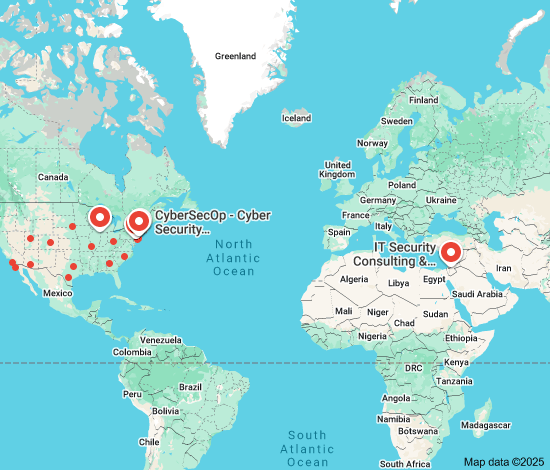Revolutionizing Industries: The Impact of Artificial Intelligence in Business
Artificial Intelligence in Business: Transforming the Future
Artificial Intelligence (AI) is no longer a futuristic concept; it is a present-day reality that is reshaping the business landscape. From enhancing customer experiences to optimizing operations, AI is becoming an integral part of modern business strategies. This article delves into how AI is transforming businesses across various sectors.
The Role of AI in Business
AI technologies, such as machine learning, natural language processing, and robotics, are enabling businesses to automate processes, analyze data more efficiently, and make informed decisions. Here are some key areas where AI is making a significant impact:
Customer Service and Support
AI-powered chatbots and virtual assistants are revolutionizing customer service by providing instant responses and personalized interactions. These tools can handle routine inquiries, freeing up human agents to focus on more complex issues.
Data Analysis and Insights
Businesses generate vast amounts of data daily. AI algorithms can process this data at high speed to uncover patterns and insights that would be impossible for humans to identify manually. This capability allows companies to make data-driven decisions that enhance performance and competitiveness.
Marketing and Sales
AI helps businesses personalize marketing campaigns by analyzing consumer behavior and preferences. Predictive analytics can forecast trends, allowing companies to tailor their strategies accordingly. Additionally, AI tools optimize pricing strategies by assessing market conditions in real-time.
Supply Chain Management
AI improves supply chain efficiency by predicting demand fluctuations, optimizing inventory levels, and identifying potential disruptions before they occur. This leads to cost reductions and improved customer satisfaction through timely deliveries.
The Benefits of Implementing AI in Business
- Increased Efficiency: Automation of repetitive tasks reduces human error and increases productivity.
- Cost Savings: By optimizing processes and reducing waste, businesses can achieve significant cost savings.
- Enhanced Decision-Making: Real-time data analysis provides actionable insights that inform strategic decisions.
- Improved Customer Experience: Personalized services create better customer satisfaction and loyalty.
The Challenges of AI Adoption
Despite its benefits, implementing AI comes with challenges such as:
- Lack of Expertise: There is a shortage of skilled professionals who can develop and manage AI systems effectively.
- Cultural Resistance: Employees may resist changes brought about by automation due to fear of job displacement.
- Data Privacy Concerns: Handling sensitive data requires robust security measures to prevent breaches.
The Future of AI in Business
The future looks promising as advancements in technology continue to expand the capabilities of AI. Businesses that embrace these changes will likely gain a competitive edge in their industries. As AI becomes more accessible, even small businesses will be able to leverage its power for growth and innovation.
The integration of artificial intelligence into business practices marks the dawn of a new era where efficiency meets creativity, paving the way for unprecedented opportunities across all sectors.
Unlocking Business Success: 8 Key Advantages of AI Integration
- Increased efficiency through automation of repetitive tasks.
- Cost savings by optimizing processes and reducing waste.
- Enhanced decision-making with real-time data analysis.
- Improved customer experience through personalized services.
- Predictive analytics for forecasting trends and planning strategies.
- Optimized marketing campaigns based on consumer behavior analysis.
- Efficient supply chain management with demand prediction and inventory optimization.
- Competitive edge in the market by leveraging AI for innovation and growth.
5 Challenges of Integrating Artificial Intelligence in Business: From Job Displacement to Technological Dependence
- 1. Job Displacement
- 2. Data Privacy Concerns
- 3. Cost of Implementation
- 4. Lack of Human Touch
- 5. Dependence on Technology
Increased efficiency through automation of repetitive tasks.
Artificial intelligence significantly boosts efficiency in business by automating repetitive tasks, allowing employees to focus on more strategic and creative endeavors. By taking over routine activities such as data entry, scheduling, and basic customer inquiries, AI reduces the likelihood of human error and speeds up processes that would otherwise consume valuable time. This not only enhances productivity but also leads to cost savings and improved accuracy. As a result, businesses can allocate resources more effectively, prioritize innovation, and ultimately achieve better outcomes in a competitive marketplace.
Cost savings by optimizing processes and reducing waste.
Artificial intelligence significantly contributes to cost savings in business by optimizing processes and reducing waste. By automating routine tasks and streamlining operations, AI minimizes the need for manual intervention, which can lead to human error and inefficiency. This automation not only speeds up processes but also ensures consistent quality, reducing the likelihood of costly mistakes. Additionally, AI systems can analyze data to identify areas of waste within a company’s operations, such as excess inventory or inefficient energy use. By addressing these issues proactively, businesses can cut unnecessary expenses and allocate resources more effectively, ultimately boosting their bottom line while maintaining high operational standards.
Enhanced decision-making with real-time data analysis.
Artificial intelligence significantly enhances decision-making in business by enabling real-time data analysis. Through AI-powered analytics, businesses can process vast amounts of data quickly and accurately, allowing leaders to gain valuable insights into market trends, customer behaviors, and operational efficiencies. This immediate access to actionable information empowers companies to make informed decisions swiftly, adapt strategies on the fly, and anticipate future challenges with greater confidence. By leveraging AI’s ability to analyze data in real time, businesses can optimize performance, reduce risks, and maintain a competitive edge in an ever-evolving marketplace.
Improved customer experience through personalized services.
Artificial intelligence significantly enhances customer experience by enabling businesses to offer personalized services tailored to individual preferences and behaviors. Through advanced data analytics and machine learning algorithms, AI can analyze vast amounts of customer data to identify patterns and predict future needs. This allows companies to deliver targeted recommendations, personalized marketing messages, and customized solutions that resonate with each customer. By anticipating customer desires and providing relevant interactions, businesses can foster stronger relationships, increase customer satisfaction, and build loyalty. Ultimately, AI-driven personalization transforms the way companies engage with their clients, creating a more meaningful and efficient customer journey.
Predictive analytics for forecasting trends and planning strategies.
Predictive analytics, powered by artificial intelligence, is revolutionizing how businesses forecast trends and plan strategies. By analyzing vast amounts of historical and real-time data, AI algorithms can identify patterns and predict future outcomes with remarkable accuracy. This capability enables businesses to anticipate market shifts, consumer behavior changes, and potential disruptions, allowing them to proactively adjust their strategies. As a result, companies can optimize resource allocation, improve decision-making processes, and maintain a competitive edge in their respective industries. By leveraging predictive analytics, businesses are better equipped to navigate uncertainties and capitalize on emerging opportunities.
Optimized marketing campaigns based on consumer behavior analysis.
Artificial intelligence is revolutionizing marketing by enabling businesses to optimize their campaigns through detailed consumer behavior analysis. By leveraging AI algorithms, companies can sift through vast amounts of data to identify patterns and preferences among their target audience. This allows for the creation of highly personalized marketing strategies that resonate with consumers on an individual level. As a result, businesses can deliver more relevant content and offers, enhancing customer engagement and increasing conversion rates. The ability to predict consumer trends and tailor campaigns accordingly not only maximizes the return on investment but also strengthens brand loyalty by meeting customer needs more effectively.
Efficient supply chain management with demand prediction and inventory optimization.
Artificial intelligence significantly enhances supply chain management by enabling accurate demand prediction and inventory optimization. By analyzing historical data and current market trends, AI algorithms can forecast demand fluctuations with remarkable precision. This predictive capability allows businesses to adjust their inventory levels proactively, ensuring that they have the right amount of stock at the right time. Consequently, companies can minimize overstocking or stockouts, reducing storage costs and improving cash flow. Additionally, AI-driven insights help identify potential supply chain disruptions early on, allowing businesses to implement contingency plans swiftly. Overall, AI’s role in supply chain management leads to increased efficiency, cost savings, and improved customer satisfaction through timely product availability.
Competitive edge in the market by leveraging AI for innovation and growth.
Leveraging artificial intelligence provides businesses with a significant competitive edge in the market by driving innovation and fostering growth. AI enables companies to streamline operations, enhance product offerings, and deliver personalized customer experiences, all of which contribute to a stronger market position. By utilizing AI-driven insights and predictive analytics, businesses can anticipate market trends and consumer needs more accurately, allowing them to adapt quickly and strategically. This agility not only helps in capturing new opportunities but also in mitigating potential risks. As a result, companies that effectively integrate AI into their strategies are better positioned to outpace competitors and achieve sustainable growth.
1. Job Displacement
One significant concern regarding the integration of artificial intelligence in business is job displacement. As AI technologies advance, many routine and manual tasks are becoming automated, leading to a reduction in the demand for human labor in certain roles. This shift can result in job losses as positions that were once essential become obsolete. Industries such as manufacturing, customer service, and data entry are particularly vulnerable to this trend, as AI-driven systems can perform these tasks more efficiently and cost-effectively. While AI creates opportunities for new types of jobs, there is a growing need for reskilling and upskilling the workforce to adapt to the changing employment landscape. The challenge lies in managing this transition effectively to minimize the negative impact on workers and ensure that they are equipped with the skills required for emerging roles in an AI-driven economy.
2. Data Privacy Concerns
The integration of artificial intelligence in business operations brings with it significant data privacy concerns, particularly when handling sensitive information. AI systems often require large datasets to function effectively, which may include personal or confidential data. This reliance on extensive data collection and processing raises the risk of unauthorized access or breaches, potentially exposing sensitive information. Businesses must navigate complex regulatory landscapes, such as GDPR and CCPA, to ensure compliance while protecting customer privacy. Moreover, the sophisticated nature of AI algorithms can make it challenging to fully understand how data is being used or shared, further complicating efforts to maintain transparency and security. As a result, companies must invest in robust cybersecurity measures and transparent data management practices to mitigate these risks and build trust with their customers.
3. Cost of Implementation
Integrating AI technologies into a business can be a costly endeavor, particularly for smaller companies with limited budgets. The expenses associated with AI implementation include not only the initial investment in software and hardware but also the ongoing costs of maintenance, updates, and training staff to effectively use these new systems. Additionally, small businesses may need to hire specialized personnel or consultants to manage and oversee AI projects, further increasing the financial burden. This substantial investment can be daunting for small businesses that are already operating on tight margins, potentially hindering their ability to adopt AI solutions and compete with larger enterprises that have more resources at their disposal.
4. Lack of Human Touch
One significant drawback of using artificial intelligence in business is the lack of human touch in customer interactions. While AI-powered chatbots and virtual assistants can efficiently handle routine inquiries and provide instant responses, they often fall short in delivering the empathy and understanding that human customer service representatives offer. This absence of a personal connection can lead to customer frustration, especially in situations that require emotional intelligence or nuanced problem-solving. As a result, businesses may struggle to build strong relationships with their customers, potentially impacting customer satisfaction and loyalty. Balancing AI efficiency with human empathy remains a challenge for companies aiming to provide exceptional customer experiences.
5. Dependence on Technology
Dependence on technology is a significant concern when it comes to integrating artificial intelligence into business operations. As companies increasingly rely on AI systems for critical tasks, they may become vulnerable to disruptions if these systems malfunction or are compromised. A technical glitch or cyberattack could lead to significant operational setbacks, financial losses, and damage to a company’s reputation. This overreliance can also diminish human oversight and problem-solving skills, making businesses less adaptable in the face of unexpected challenges. Therefore, while AI offers numerous advantages, it is crucial for businesses to maintain a balanced approach that includes contingency plans and robust cybersecurity measures to mitigate these risks.







